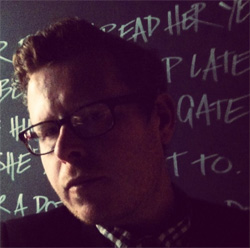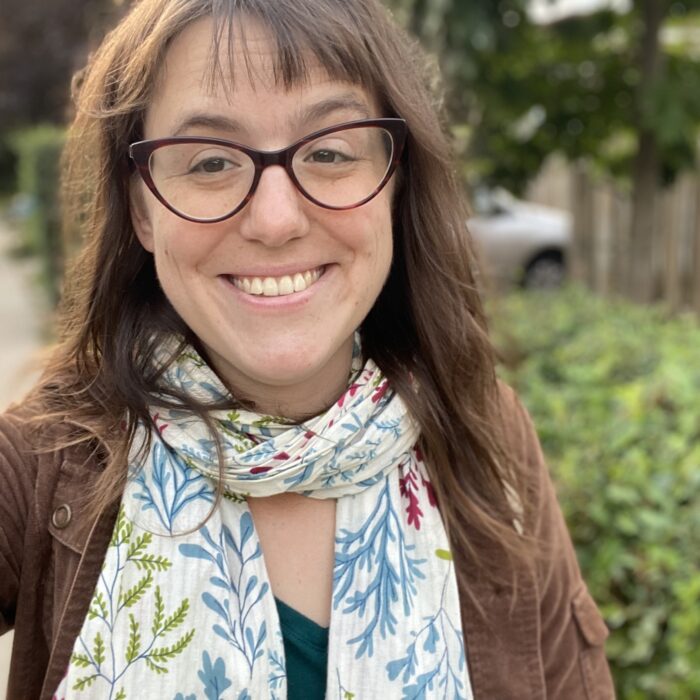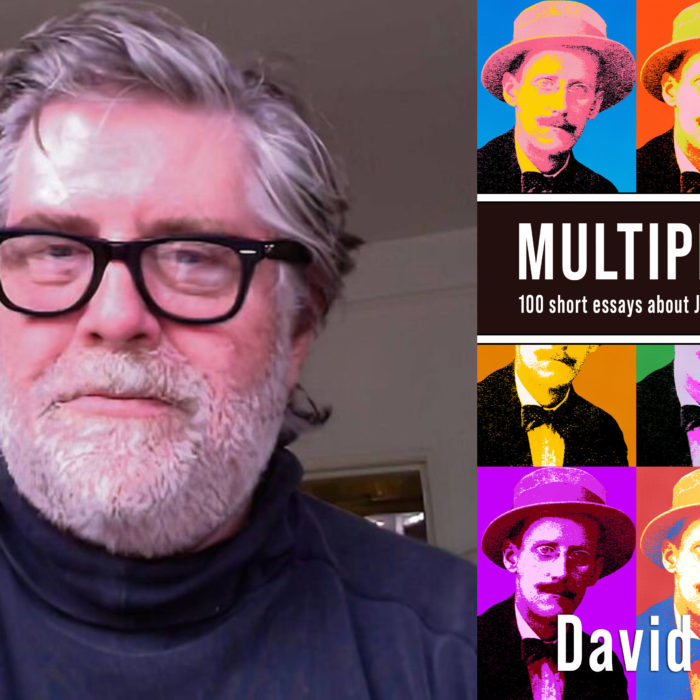You have no items in your cart. Want to get some nice things?
Go shopping Lee Rourke is the author of The Canal (Melville House), which won the Guardian’s Not The Booker Prize 2010. His debut poetry collection Varroa Destructor is to be published in October 2012. He is Writer-in-Residence at Kingston University, London. He blogs at leerourke.blogspot.com and tweets as @leerourke.
Lee Rourke is the author of The Canal (Melville House), which won the Guardian’s Not The Booker Prize 2010. His debut poetry collection Varroa Destructor is to be published in October 2012. He is Writer-in-Residence at Kingston University, London. He blogs at leerourke.blogspot.com and tweets as @leerourke.
Describe your earliest memory.
Being pushed through a park: greens and browns, a blur, much like a Gerhard Richter painting.
What was the first book you ever loved? Why?
It was a book about fossils. I was obsessed with trilobites and ammonites from an early age. From the Latin fossus: to dig up. Which for me is what writing is: excavation.
Describe the first time you realised that the world may not be as it seems.
From an early age. I always felt things didn’t quite fit. Things didn’t look or feel right. I remember thinking: “So, you want me to actually believe that this old, fat man in a red and white suit is real?” Also, I was brought up Catholic (Irish-Mancunian); if there’s one thing that can reveal to us how duplicitous this world is, it’s got to be organised religion.
What has been the most formative place in your life and how has it changed you?
I should say Manchester, because that’s where I’m from. But I must betray my roots and ostracise myself forever more and say London. London taught me anonymity, perspective, and a sense of a perpetually evolving present. I shed all forms of nostalgia and sentimentality in London. Which is massively important for my writing.
If you could be any literary character, who would you be? Why?
That’s a tough one, as I’m not a fan of characterisation in novels. Could I say I’d like to be the “perspective” from an Alain Robbe-Grillet novel? Or does that make me sound like a pretentious dickhead? Oh, I’m a dickhead, I don’t care.
Which literary character could you fall in love with and why? How would you win him/her over?
I’ve never fallen in love with a literary character, nor could I. There are characters I have obsessed over. But, you know. I’m sorry, I don’t know how to answer this question. I could go with it, to be entertaining, but it wouldn’t feel right. So, again, I’ll risk both you and the reader thinking I’m a pretentious arse… I’m not. Honest. I just seem unable to engage with fiction in this way. I’ve always found it odd that some readers (almost all) judge a book by how much they love/hate characters and protagonists. That’s such an odd way to read a book.
If you could time-travel and teleport, which literary world would you want to live in? Why?
There’s no past or future, just a perpetual present. I’ve read too much Schopenhauer for this sort of wish. As J. G. Ballard said: the future is boring.
What do you do when you’re not reading or writing?
Hang out with my wife and two cats. Lots of DIY. Think of ways to ruin David Cameron’s life. The usual stuff.
Describe the worst job you’ve ever had.
I abhor work, so pretty much all of them. Especially office jobs surrounded by people. Urgh. I prefer factories; I once worked in an umbrella factory. That was fun. But work… Well, we just don’t get along.
Describe your attitude towards money.
I’m dreadful with money. But I’m improving. Money is literally filthy. As is the entire history of Chrematology—Shakespeare and Joyce taught me that.
What is your greatest extravagance?
I like this word. From the Latin extra (beyond) and vagari (to wander, stray). I guess I just try to fill my time… with stuff, things. The usual stuff. I’ve never really exceeded the bounds of anything. Marguerite Duras said that the best thing to do with time is to waste it. I like that.
Being a writer is a strange brand of “celebrity”. Tell us about your most memorable encounter.
This would have been in 2010. My publisher took me to New York for the US launch of my novel. After the launch, I was taken to another party, over in Park Slope, Brooklyn. It was in a huge, swanky “brownstone” townhouse/mansion. Some publisher, or other. Knopf, I think. My publisher knows pretty much everyone in literary New York/Brooklyn so it was the sort of affair where everyone and anyone from the literary scene was there. The place was huge and busy. I remember hanging around the kitchen, just chatting to random people, grabbing drinks from the catering staff. I got into a conversation with a man, he sounded real New York; he was old, a little frail.
It took me a while to realise that I was talking to Don Delillo. I could hardly beathe. What presence. He filled the room. All eyes were on us. I told him that I’d just come from my own book launch and he asked me if I had a copy of my novel, so I gave him a copy. He asked me to sign it, too. We spent most of the evening talking about sport, but after a few more drinks we began to talk about the novel. He told me how he was trying to re-write the history of the novel, through art, sport and a kind of “anti-dialogue”. That his work was “killing” him and that his recent “fictions” felt “truer to the word” than anything else he’d written. I asked him all about Underworld, and his shorter work. He told me that there’s more to be found in an art gallery than there is in real life. I was amazed at how open and frank he was about his own work. He gave me lots of advice: we spoke about the “calling”, what it is to be “writers”, to be able to live by our “words”, how lucky we are to have found something “creative” to cling on to in this “world without end”…
Okay, this is a lie. I didn’t meet Don Delilo, and as great as he is, I have no desire to. The party was real though, it was littered with marketing types from publishers, publicity people, young, good-looking boorish people who like to be heard and to be seen at these sorts of events, desperate to be part of something. It was like every other “literary” party I’ve been to: boring and vacuous. I have writers who are friends, and I’ve met other writers through my own writing. Writers aren’t special. We’re a dying breed, useless and disenfranchised, wandering a visual culture that has no need for us. A pitiful bunch really.
If you were to write yourself as a character, what would be your most defining characteristic or mannerism?
Repetition, repetition, repetition.
If you were to write a novel about an anti-hero/-heroine, what would his/her central flaw be?
A desire for the reader to somehow “empathise” with them, or to be beset with clumsy sentimentality and nostalgia.
If you could have a superpower, what would it be? Why?
Invisibility. To beat Blanchot at his own game. Oh, and to terrorise David Cameron on an hourly basis.
What is the most important piece of life advice you would give a young person?
To paraphrase William Carlos Williams: there are a lot of bastards out there.
What’s next for you (work- and life-wise)?
I have a poetry collection called Varroa Destructor, out in October (I think), and I’ve just finished two novels: Amber and Vulgar Things; and a short story collection, I Like to be Stationary. Also, my novel The Canal is being made into a film, so I’m busy with that.




